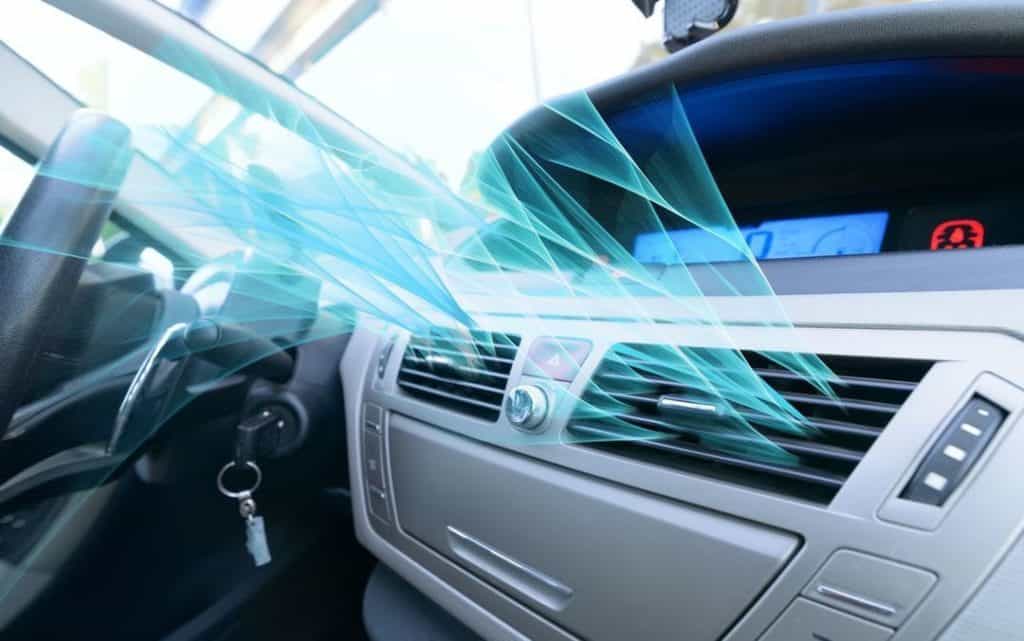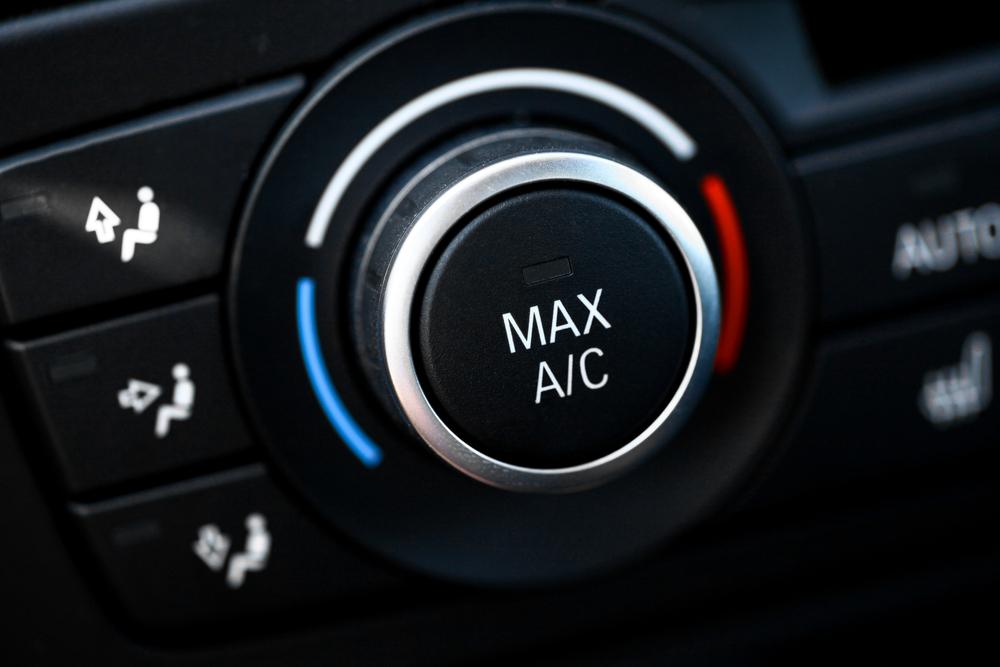Turning on the air conditioning provides immediate relief when it’s hot and opening the windows is insufficient to keep you cool. However, does running an air conditioner reduce your fuel economy? Before you get on the road, you should have an answer to this question because gas prices are about to reach an all-time high. The air conditioning system does use gas, just like many other components in your car. The alternator, which is driven by the engine, supplies power to the air conditioner.
Continue reading to discover more about the operation and impact on gas mileage of the air conditioning system in your car. You may be interested in Why Are Gas Prices Going Up?
How Car AC Works?
Air conditioning functions generally the same in all automobiles. Their systems are powered by refrigerant, a high-pressure gas. No matter the make, the air conditioning system uses the following parts:
- Compressor — compresses the refrigerant into a fluid, so the liquid refrigerant flows through a line to the condenser.
- Condenser — removes the heat from the refrigerant and pushes it along to the expansion valve or orifice tube.
- Expansion valve or orifice tube — returns the refrigerant to its original gaseous state and moves it to the receiver/drier or accumulator.
- Receiver/drier or accumulator — removes moisture from the refrigerant and transfers it to the evaporator.
- Evaporator — pulls heat from the air passing through its core and transfers it into the refrigerant, resulting in cold air flowing beyond the evaporator.
Does AC Use Gas?
You do need gas to run the air conditioner in your gas-powered car. Usually, electrical energy produced by pumps and the alternator ultimately powers the air conditioning system. You may be interested in Does Cruise Control Save Gas?
AC Or Heat: Which Consumes More Gas?
Your car’s heating system uses the warmth of the running engine to produce the hot air that eventually escapes through vents on the dashboard and other locations. Although it’s a little more complicated than that, the main point is that since the engine is already warm, producing heat doesn’t require a lot of additional effort from the engine.
However, running the heater does necessitate running fans to move the air. Because the fans are powered by the car, you must use more gas than you would if the heater were not on at all.
Typically, running the heater uses less gas than running the air conditioner.

How Much Gas Is Used By AC?
When the air conditioner doesn’t have to work too hard, it will only slightly reduce your miles per gallon. You may lose a few miles per gallon when it’s extremely hot outside and the air conditioner is working overtime.
For instance, a recent Consumer Reports study revealed that running the air conditioner will cost you one to four miles per gallon of gas. Changes in ambient air temperature are largely responsible for variations in fuel consumption.
The system works harder and burns more gas when it’s hotter.
Is It Beneficial To Use The AC?
Running the AC is always worthwhile for those who are sensitive to heat or have medical conditions that make it difficult to breathe in conditions of high humidity.
However, some tradeoffs need to be taken into account.
Pros Of Using The AC
- Keeps the temperature from becoming uncomfortably hot in the cabin
- Prevents moisture from building up inside of the car when the fresh air is humid
- Dries the air to limit condensation on the inside of the window
- Preserves aerodynamics and limits air resistance of the car
Cons Of Using The AC
- Can lead to condensation on the outside of the windows
- Using the AC may negatively affect fuel mileage
- Robs your car of some performance to provide cooled air
Is Running The AC Worth It?
Operating the air conditioner is often worthwhile. It frequently benefits you, your car, and the people inside. On the other hand, using the air conditioner while your car is idling or turning up the fan and cooling settings to their maximum when it is not necessary will both reduce its value.
But there are times when using the air conditioner is not worthwhile. For instance, it might be wiser to open your windows if you’re driving slowly on a warm day.
Because you’re not moving fast enough, the aerodynamic drag caused by your open windows won’t cause you to lose a significant amount of fuel economy. Your AC will also have to work very hard because it is so warm outside.
So, on a hot day, enjoy the breeze while driving slowly with the windows down. When you reach highway speed, roll up the windows to maintain your aerodynamic efficiency and turn on the AC to stay comfortable.
Some Ways To Improve Fuel Economy
Forget the AC if you want to significantly increase your miles per gallon (MPG). There are many tips on the AAA website, but these are a few to keep in mind.
- Tire pressure: “Having tires that are improperly inflated will have more impact on gas mileage than whether the AC is used or not,” Bennett says. “Underinflated tires have a higher rolling resistance, which reduces fuel economy, while overinflated tires are less of a problem.”
- Drive conservatively. Do not brake or accelerate quickly. According to AAA, this can reduce fuel economy by 15 to 30 percent at highway speeds and by 10 to 40 percent in stop-and-go traffic.
- Avoid excessive idling. Stopping for a minute or more? Turn off your engine if it’s safe to do so. One-quarter to one-half a gallon of fuel are used up by an idle car every hour.
- Proper vehicle maintenance: Consumers should keep their cars maintained in accordance with the recommended service schedule provided by the manufacturer to increase fuel economy.



